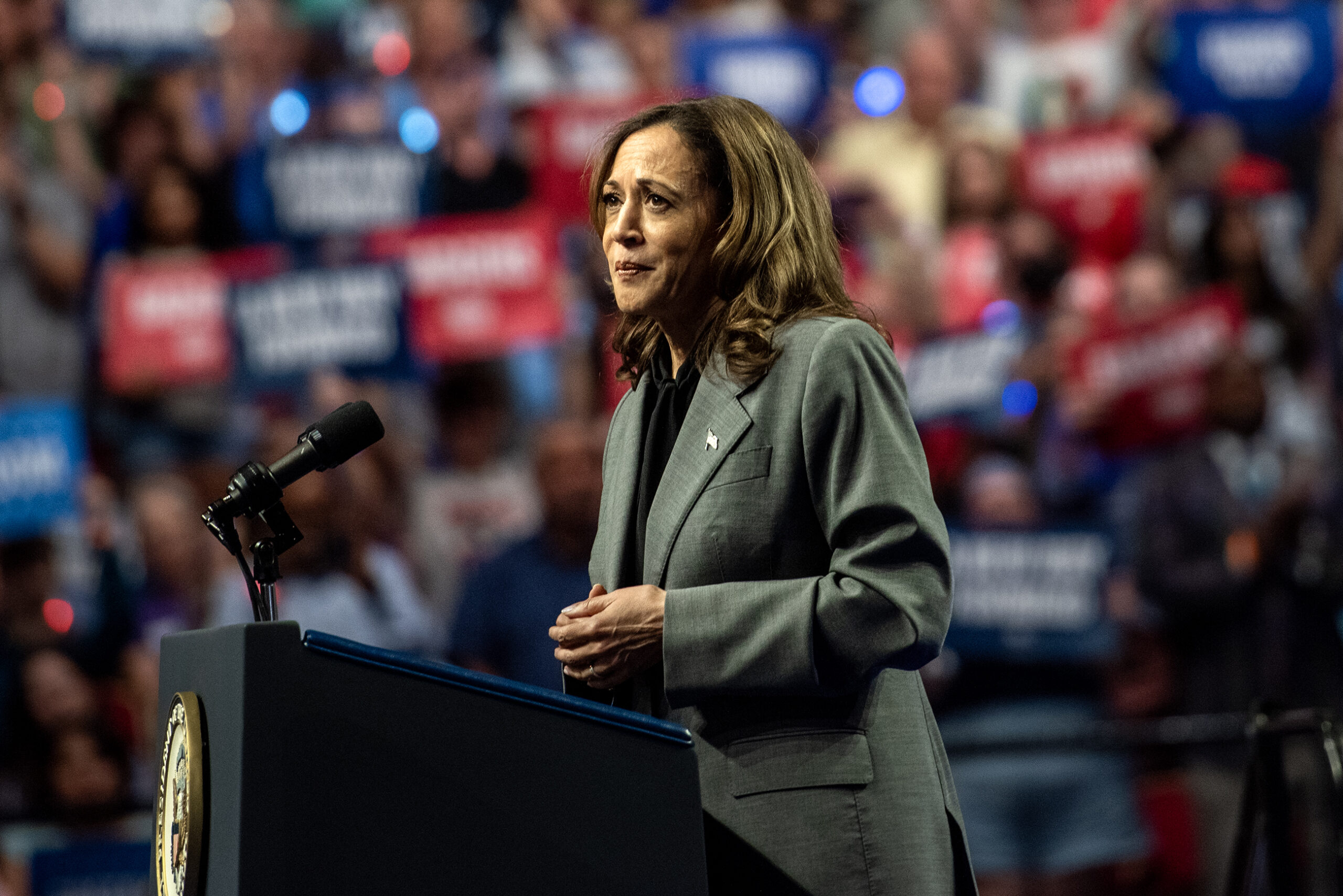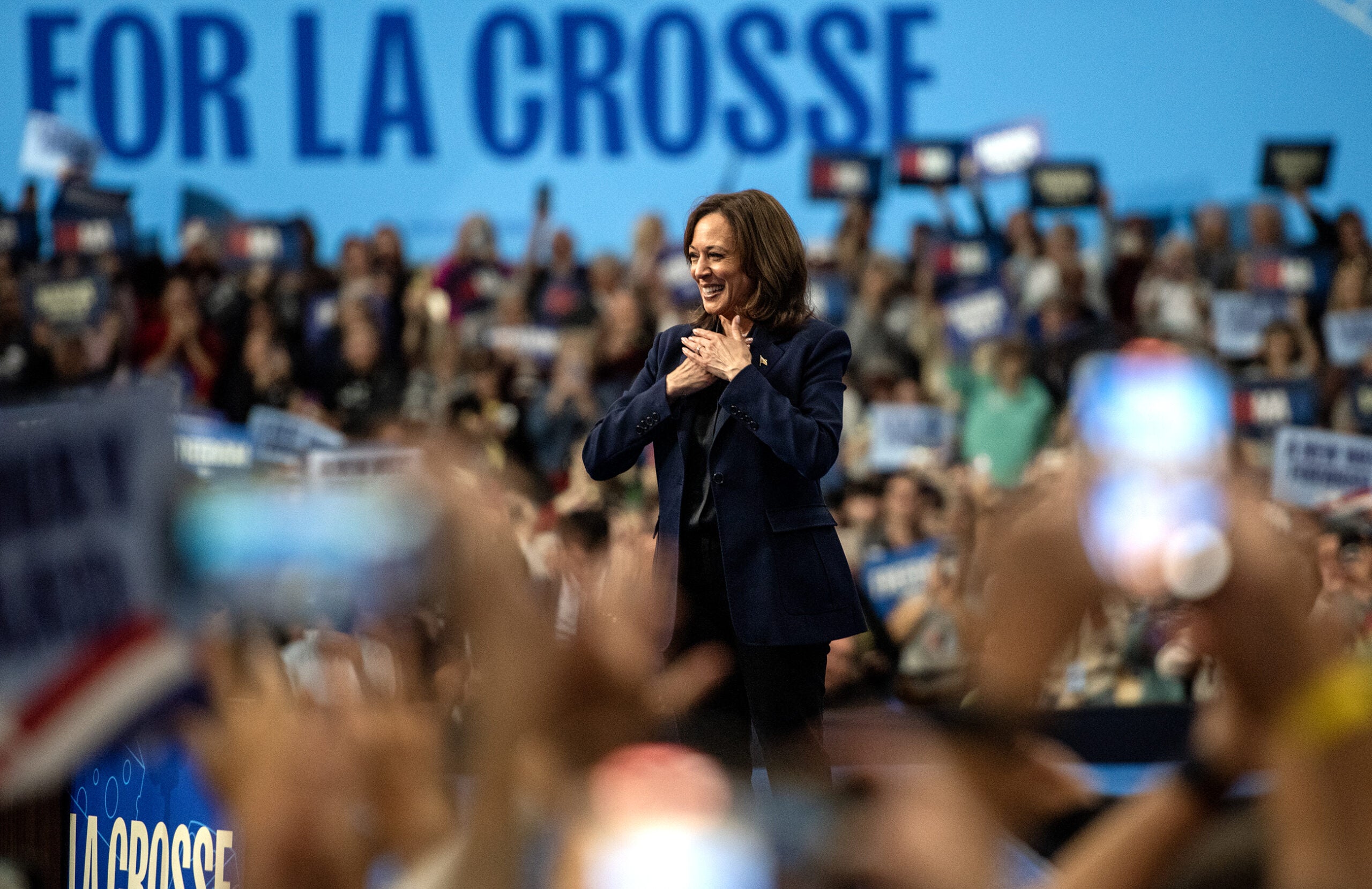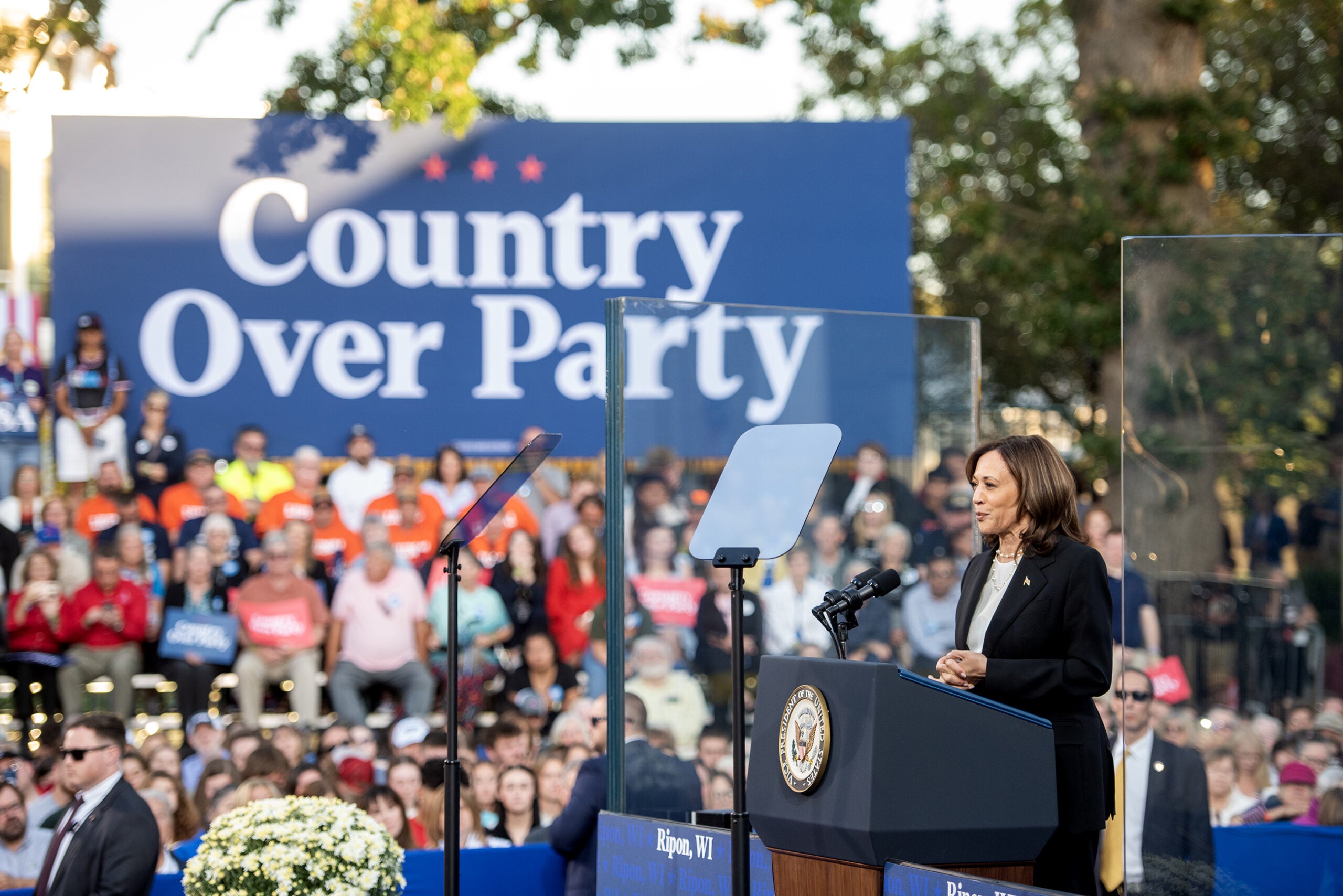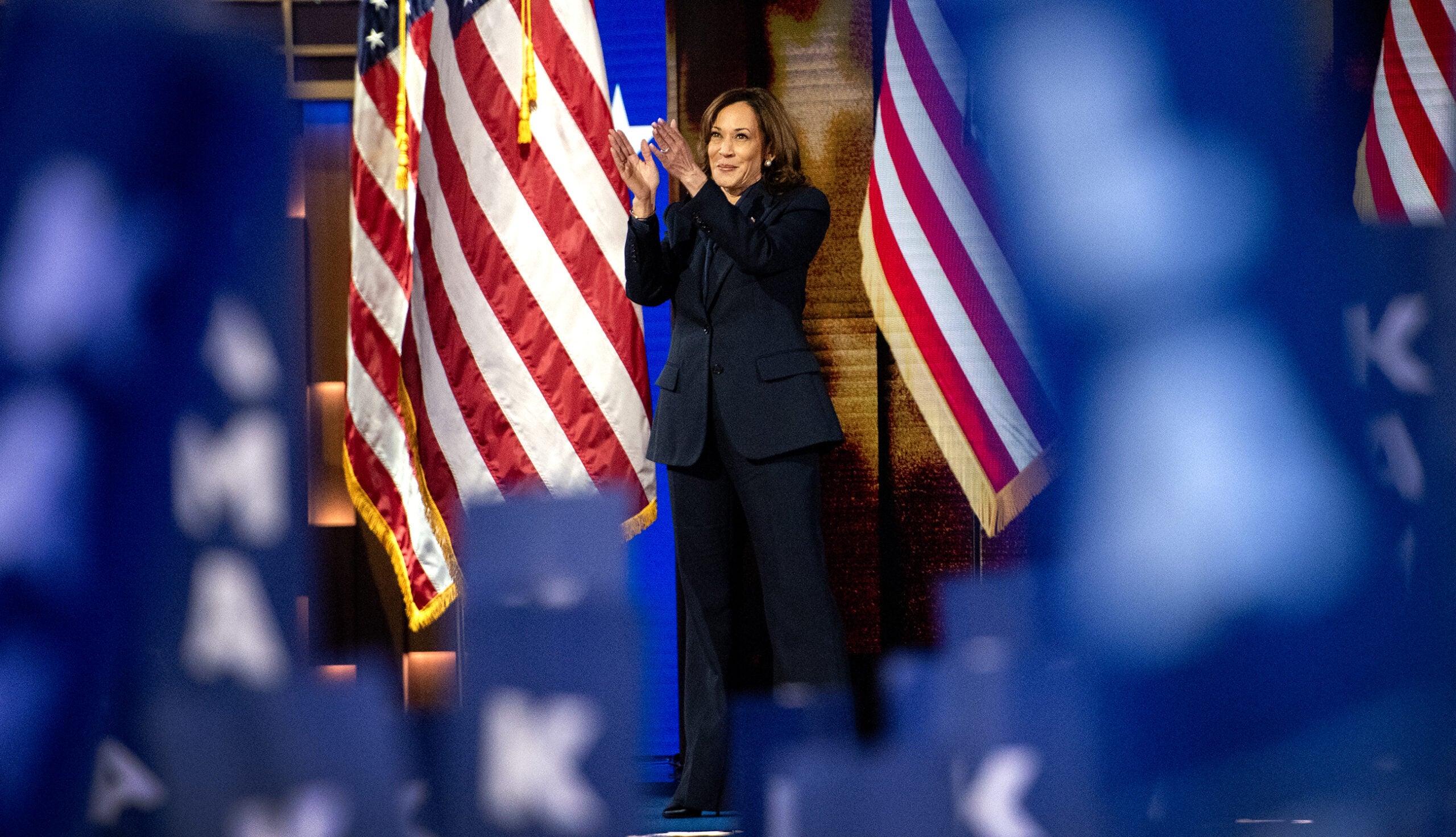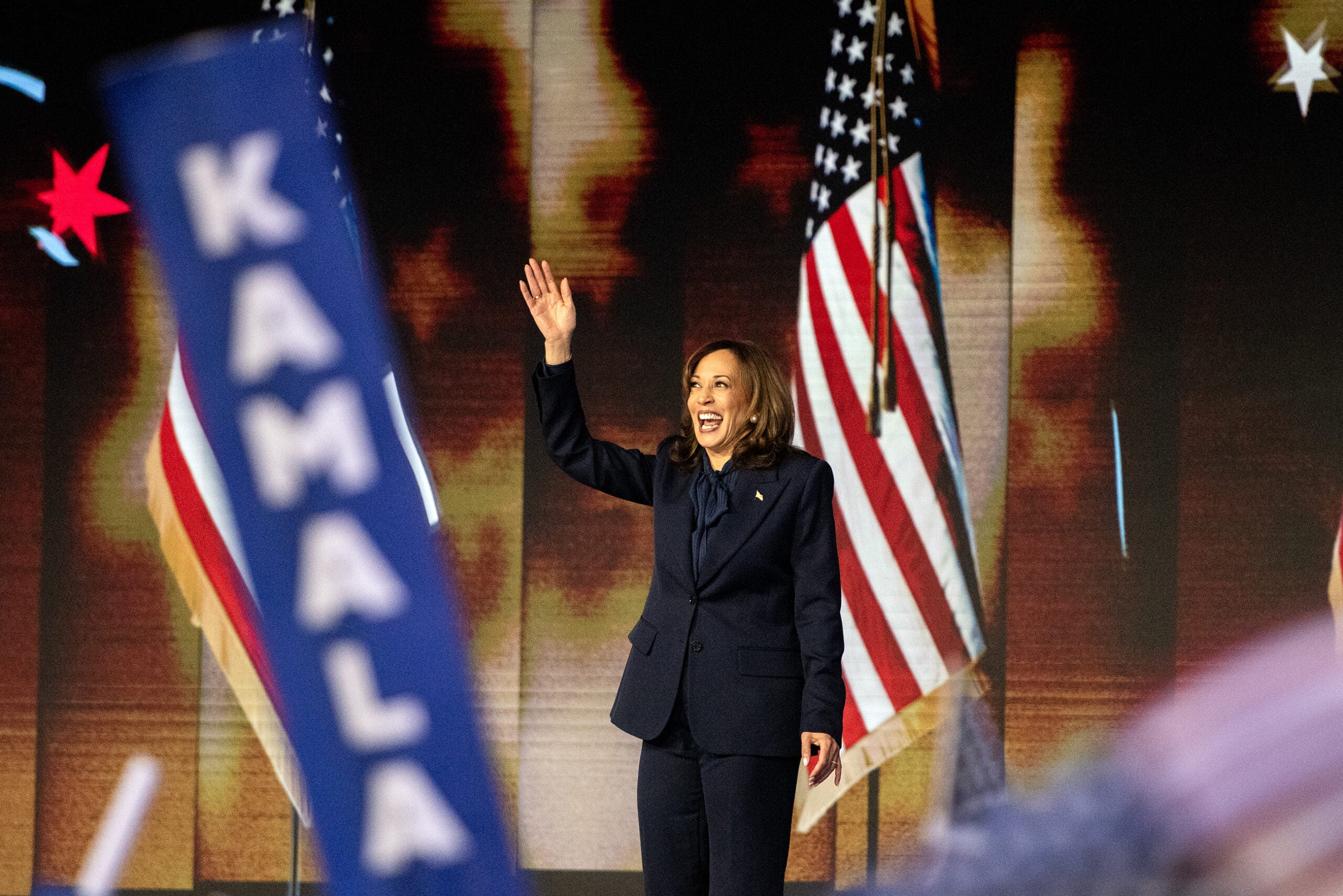Vice President and Democratic nominee for president Kamala Harris told WPR’s “Wisconsin Today” on Monday that she supports ending the filibuster to restore Roe v. Wade to protect abortion rights nationally.
“I think we should eliminate the filibuster for Roe,” Harris said in an interview that aired Tuesday morning. “And get us to the point where 51 votes would be what we need to actually put back in law the protections for reproductive freedom and for the ability of every person and every woman to make decisions about their own body and not have their government tell them what to do.”
In 2022 as vice president, Harris said she supported ending the filibuster to protect reproductive and voting rights. As a candidate for president in 2019 when she was a U.S. senator, she also said she would support ending the filibuster to pass environmental legislation known as the Green New Deal.
Stay informed on the latest news
Sign up for WPR’s email newsletter.
The filibuster can be an attempt to delay or block a vote for a piece of legislation. Eliminating it would effectively allow the U.S. Senate to pass some legislation with a simple majority rather than meeting a 60-vote threshold.
Harris’ interview with “Wisconsin Today” comes days after her fourth campaign visit to the state.
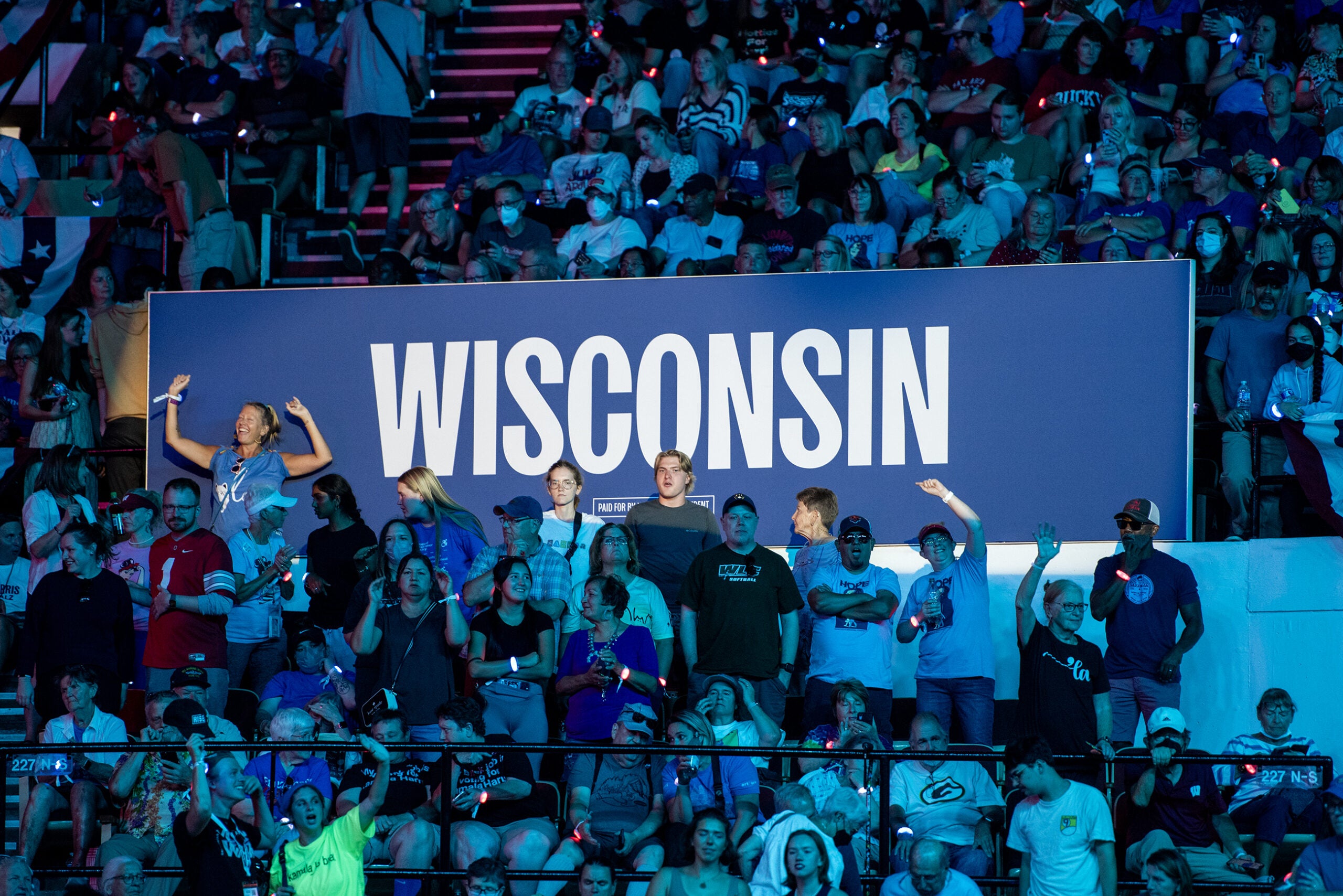
She also talked about her proposals to increase housing and assistance for first-time homebuyers and touted her experience holding polluters accountable during her time as attorney general of California.
WPR has also invited former President Donald Trump to appear on “Wisconsin Today.”
The following interview has been edited for clarity and brevity.
Kate Archer Kent: You’ve said you want to work with Congress to pass a federal bill to codify abortion rights. How do you plan to get enough support in Congress to restore abortion rights when you’d likely need to pass a Senate filibuster? You’d have potential legal hurdles.
Kamala Harris: Well, let me first say to all your listeners you must re-elect your senator — Tammy Baldwin — because we need the votes in Congress to do exactly what you are saying. And that’s true.
It is well within our reach to hold onto the majority in the Senate and take back the House.
I would also emphasize that while the presidential election is extremely important and dispositive of where we go moving forward, it also is about what we need to do to hold onto the Senate and win seats in the House.
KAK: Wisconsin has a shortage of affordable housing. The median home price in our state has jumped by 41 percent since September 2020. You proposed up to $25,000 in down payment assistance for first-time homebuyers. What would it take to be eligible for that type of assistance?
KH: Well, first of all, let me just say that part of the housing issue across our country is that we just don’t have enough supply. And so part of my plan is what we need to do to increase supply and help people get their foot in the door, which includes the $25,000 down payment assistance.
But let me just back up for a moment. Look, I grew up a middle class kid. My mother worked long days, she worked weekends and she was able to save up so that by the time I was a teenager, she was able to buy our first house.
So, I understand and have as part of my lived experience a lifetime, practically, of being a renter and also what it means for families to aspire to own a home. But it’s hard. It takes a lot of time and that was many, many years ago and the American dream of home ownership has become even more elusive.
So my policies and my new plan to approach and deal with this problem is twofold. One, to work with the private sector and homebuilders to create incentives for them to build three million new homes by the end of my first term. And the second, to your point, is a $25,000 down payment assistance for first-time homebuyers. And that’s the threshold: first-time homebuyer.
Again, the point is people just need help, literally and figuratively, getting their foot in the door. Once they’re able to do that with having enough for a down payment — folks work hard, they save up and the monthly payments will be more within their reach.
But that down payment piece is really one of the big obstacles for first-time homebuyers to be able to even plant themselves in a position where they can then build up their ability to buy a home.
Frankly, homeownership is one of the best ways that people create wealth for their family and intergenerational wealth. So I’m very clear about the connection between this point and what can be a lifetime of economic opportunity for an individual or a family.
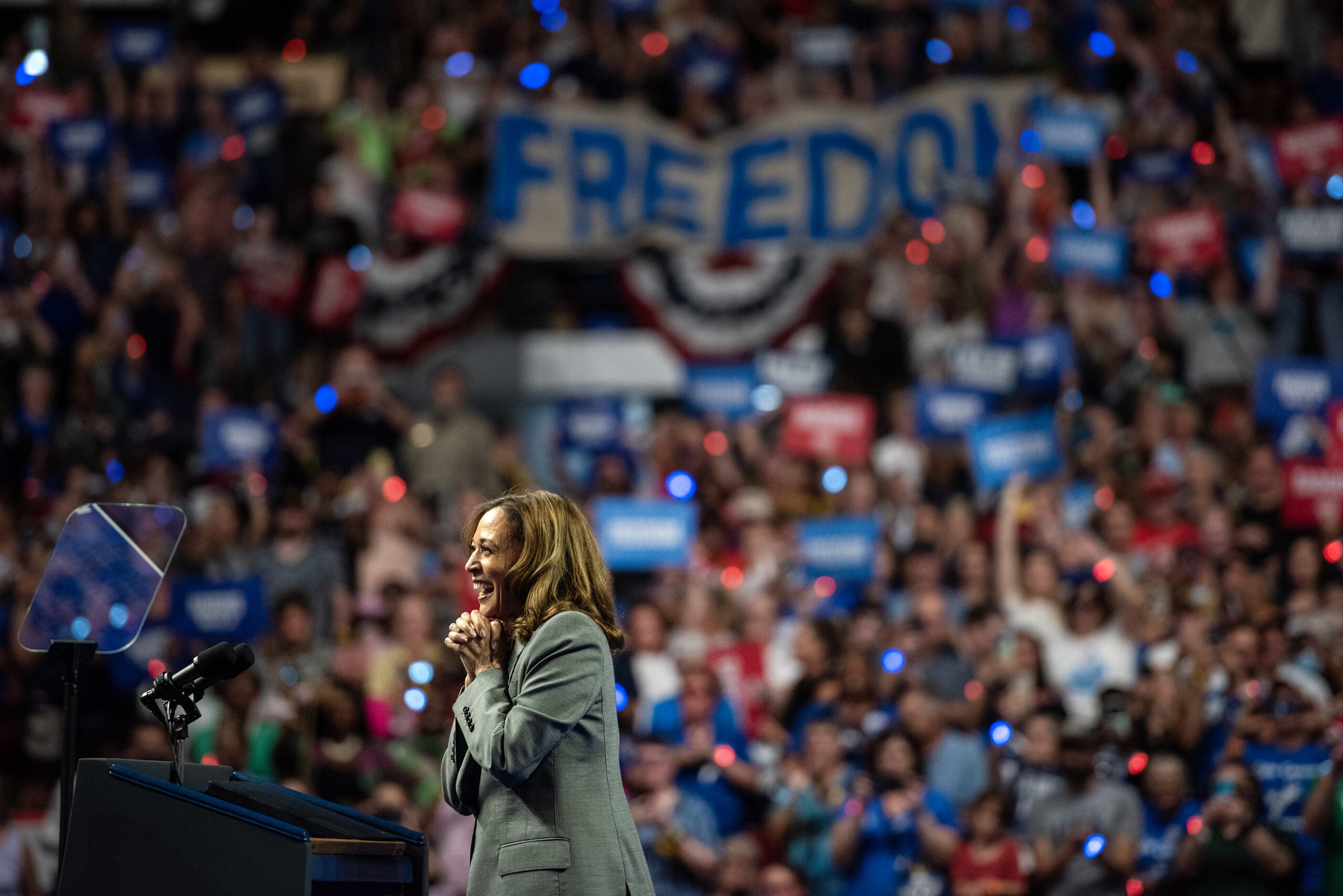
KAK: If elected, you have said you’ll work with private industry homebuilders to build these three million new homes and rental units during your first term. How do you incentivize the building of new housing that’s affordable for the people who need it most?
KH: Part of it is tax credits and creating tax credits for homebuilders — but homebuilders who are going to do the work of building homes that are affordable to middle class people, to working people, to families.
The second is to cut through the red tape that currently exists in local, state and federal levels. And really cutting through the red tape so that we don’t unnecessarily burden the ability to actually create this additional housing that brings down the cost of homeownership and rent.
I have a plan to take on corporate landlords. They have to be held accountable. We’ve seen it in so many places around our country. These corporations come in, they buy up a bunch of property and then they jack up the prices. It becomes too expensive for people to actually be able to afford to live, where they work and where they want to live.
It’s something where bad actors also need to be held accountable. But this is obviously a multi-pronged approach because the factors contributing to high rents and housing affordability are many.
My plan is to attempt to address many of them at once, so we can actually have the net effect of bringing down the cost and making homeownership renting more affordable.
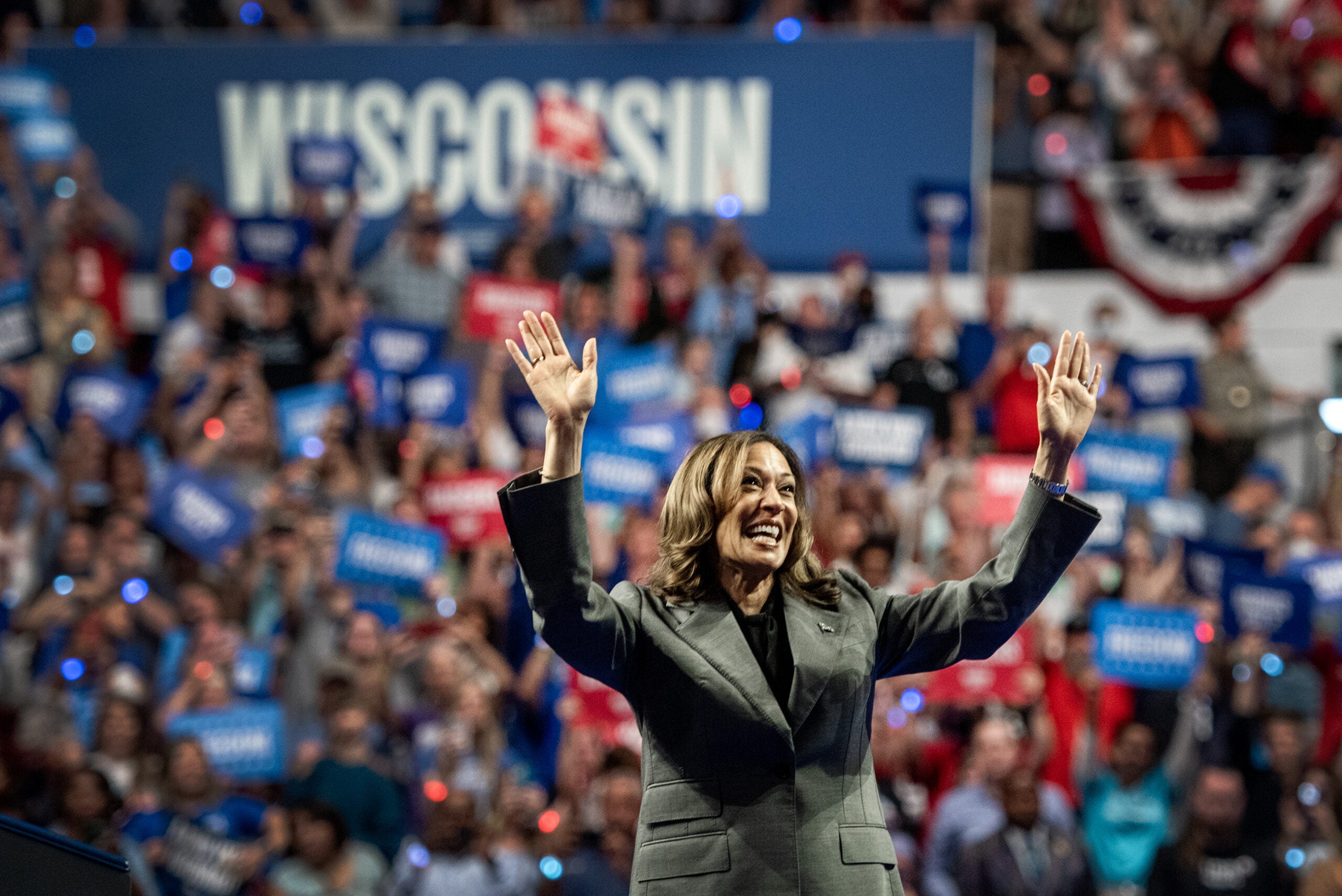
KAK: Communities all over Wisconsin are struggling with toxic PFAS contamination in their water supply. Our state Department of Natural Resources is relying on a decades old spills law to clean up emerging forever chemicals and hold businesses accountable. If you win the White House, would that lead to further federal regulation of PFAS?
KH: Well, let me start with this. My commitment to these issues is long-standing. Twenty years ago, when I was elected district attorney of San Francisco, I created one of the first environmental justice units of any DA’s office in the country.
As attorney general of California, I was a real leader on making sure that we enforced rules and standards that were about reducing PFAS, about what we need to do to reduce greenhouse gas emissions and also hold polluters accountable.
This is long-standing work, and frankly, a deep-seated and long-standing commitment that I have to addressing these issues including during the time I’ve been vice president.
We are in the process of delivering nearly $2 billion in funding to help Wisconsin and the communities within Wisconsin address toxic PFAS chemicals.
The work that we are also doing, which I’ve been a leader on frankly, is dealing with lead pipes and eliminating lead pipes. Then, of course, protecting the Great Lakes from the climate crisis.
I just have to also mention that this is in great contrast to my opponent. Donald Trump refused to protect communities from PFAS and he has sided again and again with polluters rather than with the families of Wisconsin.
And I think there’s a big contrast here on a very critical issue in terms of the public health and well being of Wisconsinites.
